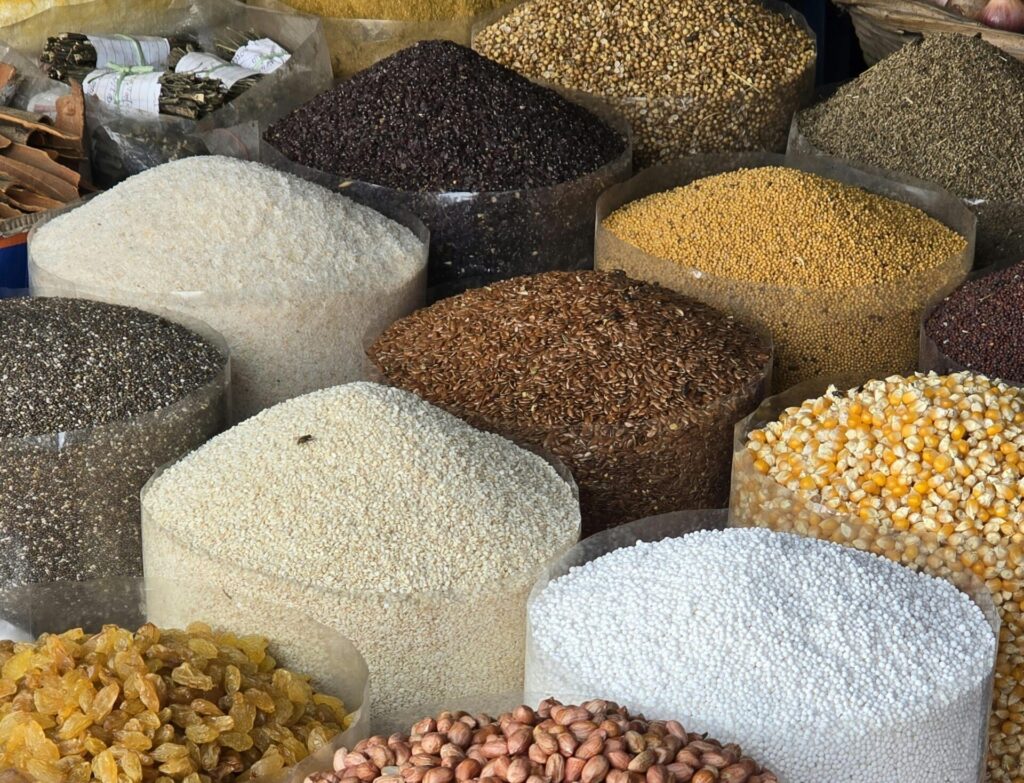
Vegan Protein Sources: How Seeds Compare to Other Plant-Based Options
In the world of plant-based nutrition, finding the best plant-based protein sources is essential for maintaining overall health. Protein plays a vital role in muscle repair, immune function, and energy production. While many believe that animal-based proteins are superior, various vegan protein sources provide ample nutrition. Among these, seeds stand out as a powerhouse of essential nutrients, making them one of the most high-protein seeds options available.
Why Is Protein Important for Vegans?
Protein consists of amino acids, some of which are essential, meaning the body cannot produce them and must obtain them from food. For vegans, consuming a variety of plant-based protein for muscle growth ensures a well-balanced amino acid profile. The key is to include diverse sources such as seeds, legumes, and whole grains to maximize protein absorption and benefits.
Understanding the Bioavailability of Plant-Based Proteins
The bioavailability of plant proteins refers to how efficiently the body digests and absorbs them. While animal proteins typically have higher bioavailability due to their complete amino acid profile, many vegan protein sources also offer highly digestible protein.
For instance, hemp seeds complete protein status makes them one of the most efficient seed-based proteins. Similarly, chia seeds protein benefits include omega-3 fatty acids, fiber, and a decent amount of protein. However, chia and flax seeds have slightly lower bioavailability due to their fiber content. To improve absorption, grinding or soaking these seeds before consumption is recommended.
Best Plant-Based Protein Sources Compared
Several vegan protein sources provide substantial nutrition, including:
- Legumes (Lentils, Chickpeas, Black Beans, and Peas) – High in protein and fiber, legumes are essential in vegan diets. One cup of cooked lentils provides about 18g of protein.
- Tofu, Tempeh, and Edamame – Derived from soybeans, these are excellent sources of plant-based protein for muscle growth. Tofu offers about 10g of protein per half-cup, while tempeh provides around 15g.
- Whole Grains (Quinoa, Oats, Brown Rice) – While grains are not as protein-dense as legumes, quinoa is a complete plant-based protein with 8g per cup.
- Nuts (Almonds, Cashews, Walnuts) – Nuts provide vegan protein sources along with healthy fats. Almonds contain about 6g per ounce.
- Vegetables (Spinach, Broccoli, Brussels Sprouts) – While not primary high-protein seeds, some vegetables contribute to overall protein intake.
How Do Seeds Compare?
Seeds are among the most high-protein seeds and nutrient-dense plant-based protein sources. They not only provide protein but also healthy fats, fiber, and essential minerals. Here’s a breakdown of the best vegan protein sources from seeds:
- Chia Seeds Protein Benefits – Contain about 5g of protein per two tablespoons, along with omega-3 fatty acids and fiber.
- Flax Seeds – Offer 4g of protein per two tablespoons and are rich in lignans and omega-3s.
- Pumpkin Seeds – One of the best plant-based protein options, providing around 7g per ounce.
- Sunflower Seeds – Deliver approximately 6g of protein per ounce and contain vitamin E and magnesium.
- Hemp Seeds Complete Protein – Stand out with about 9g of protein per three tablespoons, plus a perfect balance of omega-3 and omega-6 fatty acids.
Seeds vs. Other Plant-Based Proteins: A Comparison
| Protein Source | Protein per Serving | Key Nutrients |
|---|---|---|
| Lentils (1 cup) | 18g | Fiber, Iron, Folate |
| Tofu (1/2 cup) | 10g | Calcium, Iron |
| Quinoa (1 cup) | 8g | Complete Protein, Fiber |
| Almonds (1 oz) | 6g | Healthy Fats, Vitamin E |
| Chia Seeds (2 tbsp) | 5g | Omega-3s, Fiber |
| Pumpkin Seeds (1 oz) | 7g | Magnesium, Zinc |
| Hemp Seeds (3 tbsp) | 9g | Omega-3s, Complete Protein |
Why Include Seeds in Your Vegan Diet?
Seeds are not only convenient but also incredibly versatile. They can be added to smoothies, oatmeal, salads, and baked goods or eaten as a snack. Unlike some plant-based protein for muscle growth, seeds require minimal preparation, making them an easy way to boost daily protein intake.
Conclusion
While legumes, grains, and nuts are essential in vegan protein sources, seeds are a true superfood when it comes to protein and nutrition. They provide a concentrated source of protein, essential fats, and micronutrients. Additionally, their bioavailability of plant proteins can be improved through simple preparation methods like grinding, soaking, or sprouting.
By incorporating a variety of high-protein seeds into your meals, you can enjoy a well-rounded, best plant-based protein diet that supports overall health and well-being. Whether you’re vegan or simply looking to diversify your protein sources, don’t underestimate the power of seeds!
Sources:
- U.S. Department of Agriculture (USDA) – Food Data Central
- National Institutes of Health (NIH) – Protein and Amino Acids
- Harvard T.H. Chan School of Public Health – The Nutrition Source
- Academy of Nutrition and Dietetics – Plant-Based Diet
- Journal of the International Society of Sports Nutrition – Protein Intake and Muscle Growth
